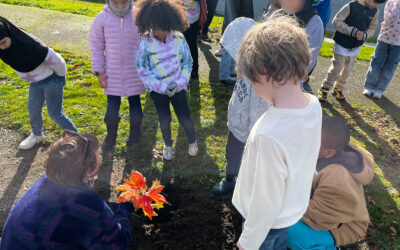Here is a series of six videos about argumentation and modeling in early elementary classes. The AST team worked with the Teaching Channel to produce these videos as a part of the Deep Learning Labs, with funding from NSF.
Modeling
Modeling in the Early Years – Overview
Critiquing & Revising Models: Structuring Whole-class Share-outs
Building Scientific Ideas with Interactive Read-Alouds
Argumentation
Scientific Argumentation in the Early Grades
>Agree Disagree T-charts: Supporting Claims with Multiple Sources of Evidence
Tools to Support Model-Based Claims, Evidence, and Reasoning
Also, we collected these as a playlist on our AST YouTube Channel here.




 This site is primarily funded by the National Science Foundation (NSF) through Award #1907471 and #1315995
This site is primarily funded by the National Science Foundation (NSF) through Award #1907471 and #1315995